Finding the right job can feel like a journey filled with ups and downs, and unfortunately, rejection is a part of that process. We know that receiving an unsuccessful job application letter can be disheartening, but it's important to view it as a stepping stone rather than a dead end. Understanding how these letters can be structured can empower you to respond positively and reflect on your next steps. So, if you're ready to turn a setback into an opportunity, keep reading for tips and insights!

Maintain Professional Tone
An unsuccessful job application can lead to valuable insights for future opportunities and self-improvement. Receiving a rejection notice typically involves a courteous email or letter from the hiring manager or human resources representative. This correspondence may highlight the competitive nature of the applicant pool, often comprising numerous qualified candidates, sometimes exceeding hundreds for a single position in large corporations such as Google or Amazon. Companies may also mention the specific strengths of the applicant's resume while expressing gratitude for their time and interest in the organization. Applicants are encouraged to seek feedback, which can provide guidance for enhancing their qualifications and interview skills. Maintaining a professional demeanor in response to such a letter is crucial, as it preserves the opportunity for future engagement with the same company, potentially for openings that may arise within the next few months or years.
Express Appreciation
Receiving feedback from a job application can be an important learning opportunity. Job seekers often face rejection, which can feel disheartening. Acknowledging the effort made by hiring managers and the opportunity to interview is vital. Expressing gratitude for the time spent reviewing applications, conducting interviews, and considering candidates helps maintain positive relationships for future opportunities. Employers value candidates who demonstrate professionalism and courtesy, even in the face of disappointment. Building a network through appreciation can lead to potential openings later, fostering a connection within the industry. Maintaining a respectful tone displays resilience and determination, qualities that employers frequently admire.
Provide Feedback (optional)
Receiving feedback after an unsuccessful job application can be helpful for personal growth and future applications. For instance, a candidate might learn about skill gaps that need to be addressed, such as proficiency in specific software like Salesforce or communication skills required for teamwork roles, which could impact their candidacy. Additionally, understanding that other applicants may have had more relevant experience, such as years in a specific industry like finance or marketing, can guide future job searches and development efforts. Feedback might also include suggestions for enhancing resumes or cover letters to better highlight achievements, such as quantifiable results in previous positions, which could increase competitiveness in future applications.
Encourage Future Applications
Receiving feedback on a job application can be disheartening, especially after investing time and effort into the process. However, understanding that this experience serves as a stepping stone towards future opportunities is vital. Many companies, like Google and Amazon, appreciate the unique qualities of each candidate. Even if the outcome is not favorable this time, it is beneficial to iterate and improve upon your application. Submitting applications for similar roles at different firms or varying industries broadens options. Engaging in networking events or professional organizations can enhance skills and industry knowledge. Regularly updating resumes and cover letters tailored to specific jobs boosts the chance of future success. Remember, persistence is key in the competitive job market.
Closing with Best Wishes
Receiving notice of an unsuccessful job application can be disheartening, especially after dedicating time and effort to the process. Competitive industries, such as technology or finance, often attract countless applicants for limited positions, making rejections commonplace. Staying professional and grateful in response is essential, as it keeps doors open for future opportunities. Expressing appreciation for the time spent by the hiring team can foster goodwill. Ending the communication with best wishes for the company's continued success showcases professionalism. It leaves a positive impression, which may lead to future considerations or networking opportunities.

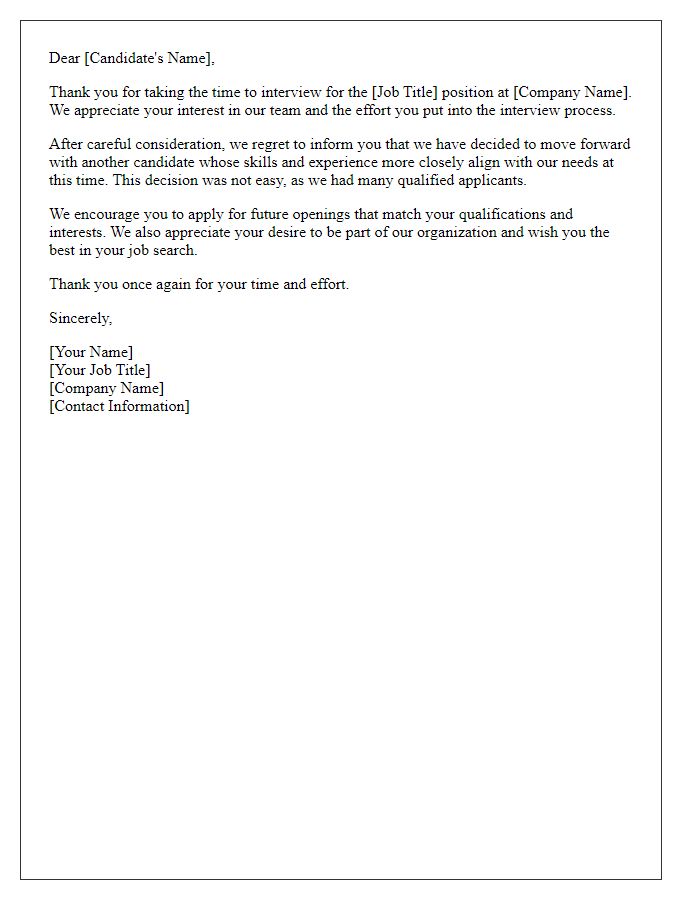
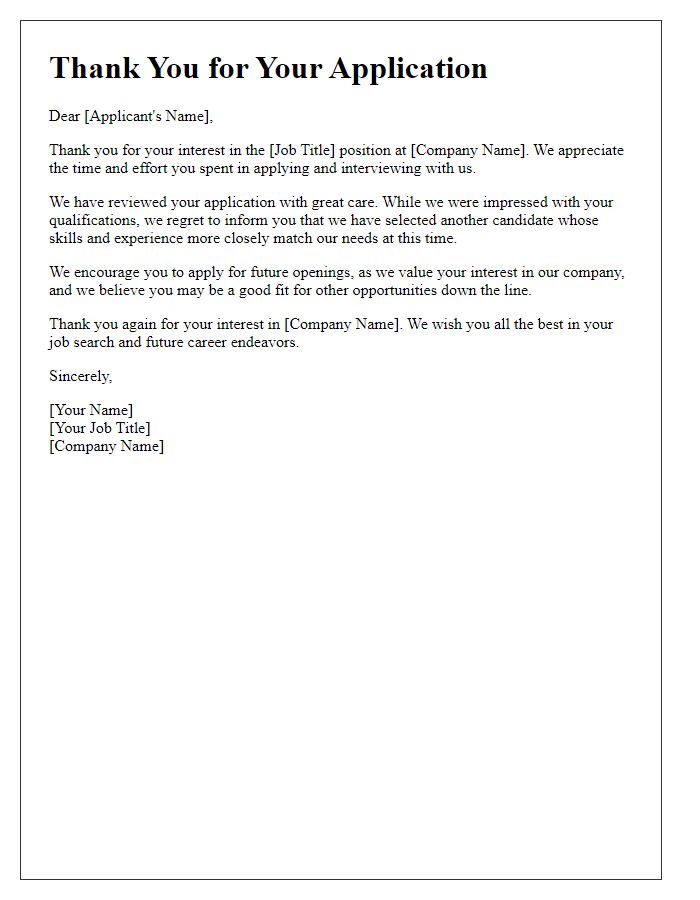
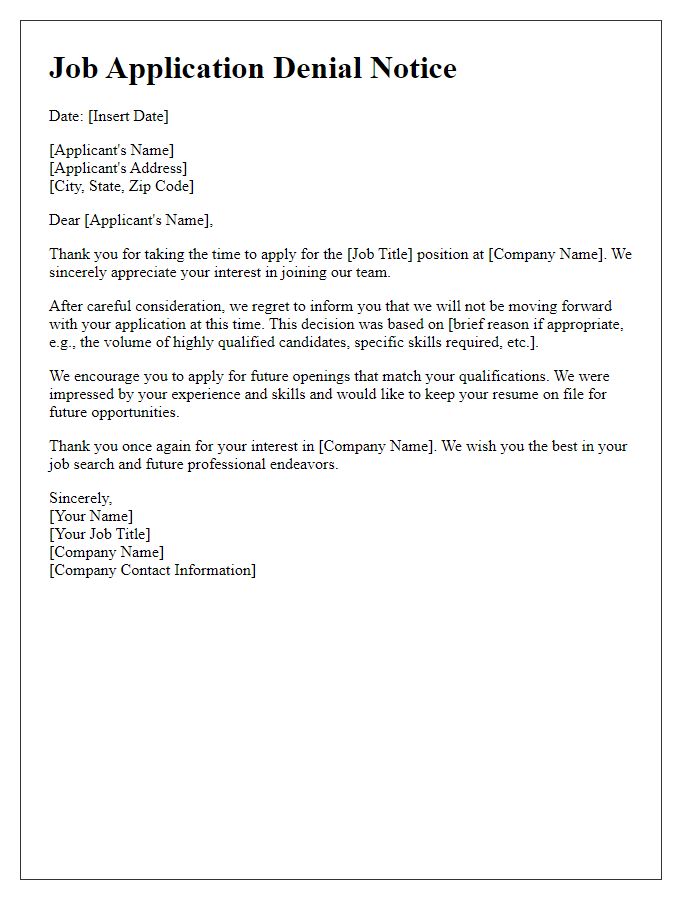
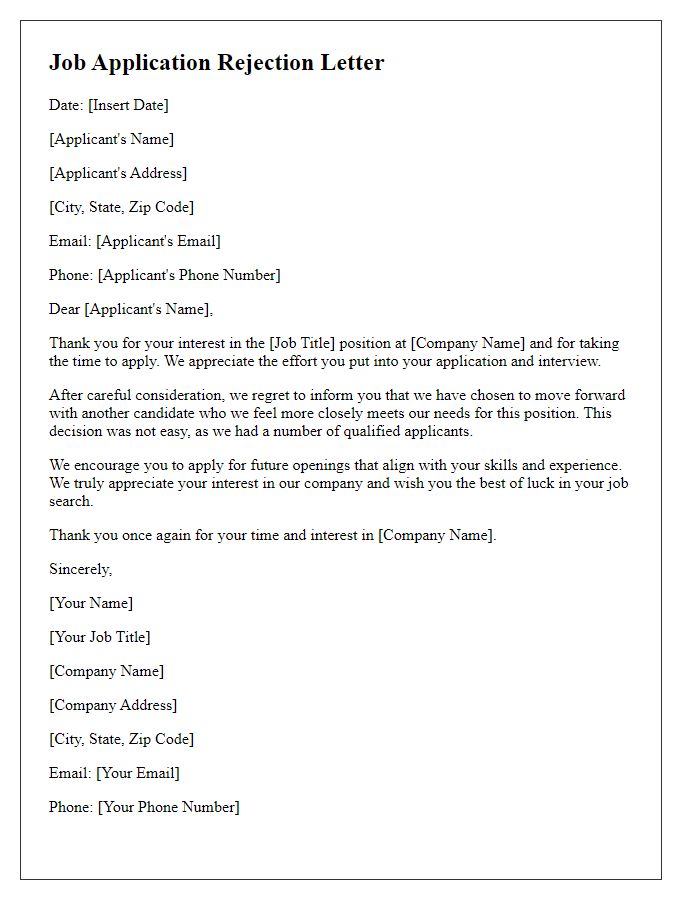
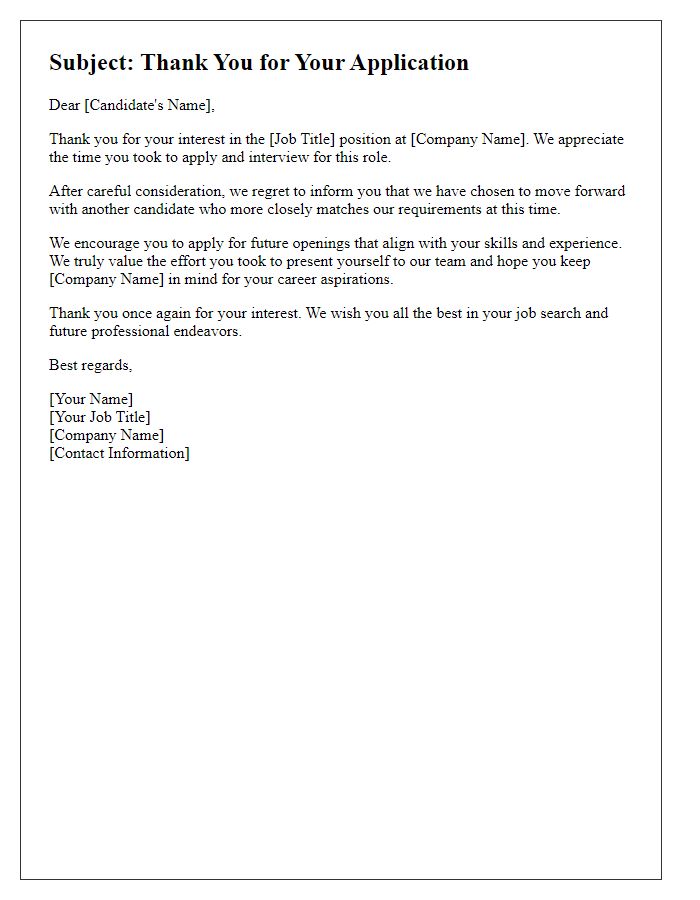
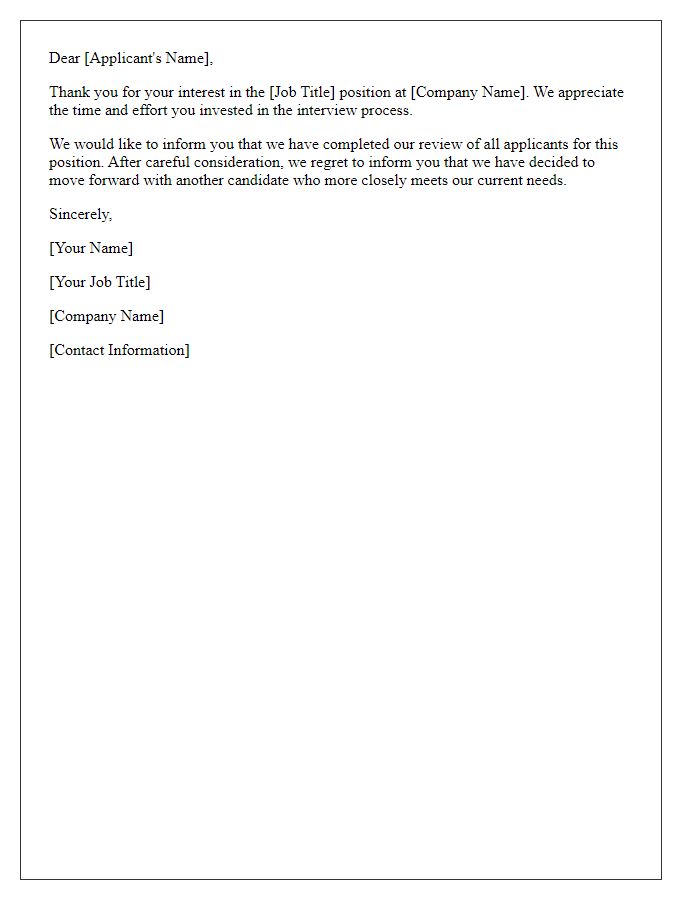
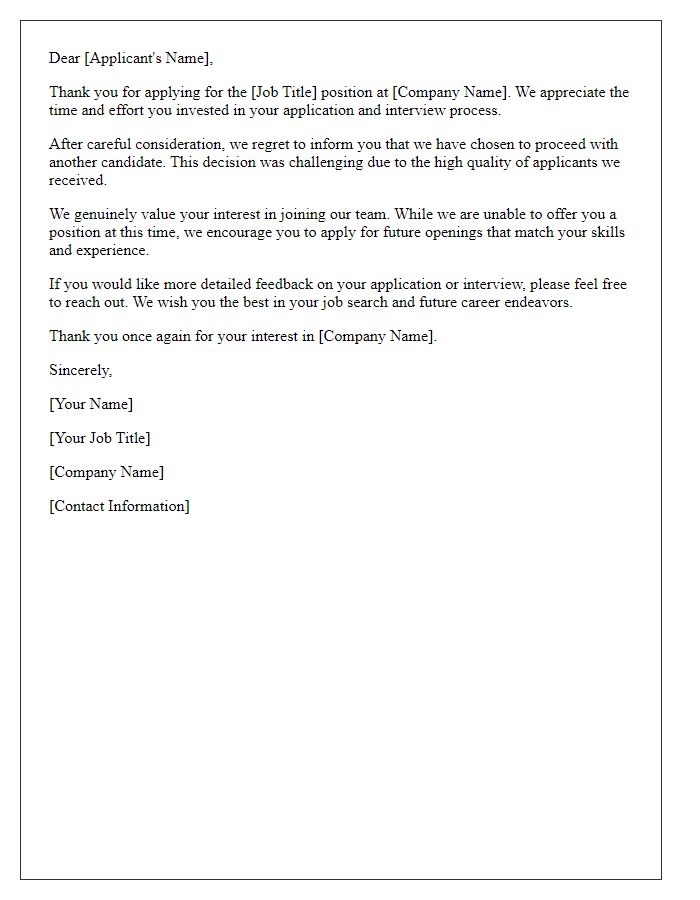
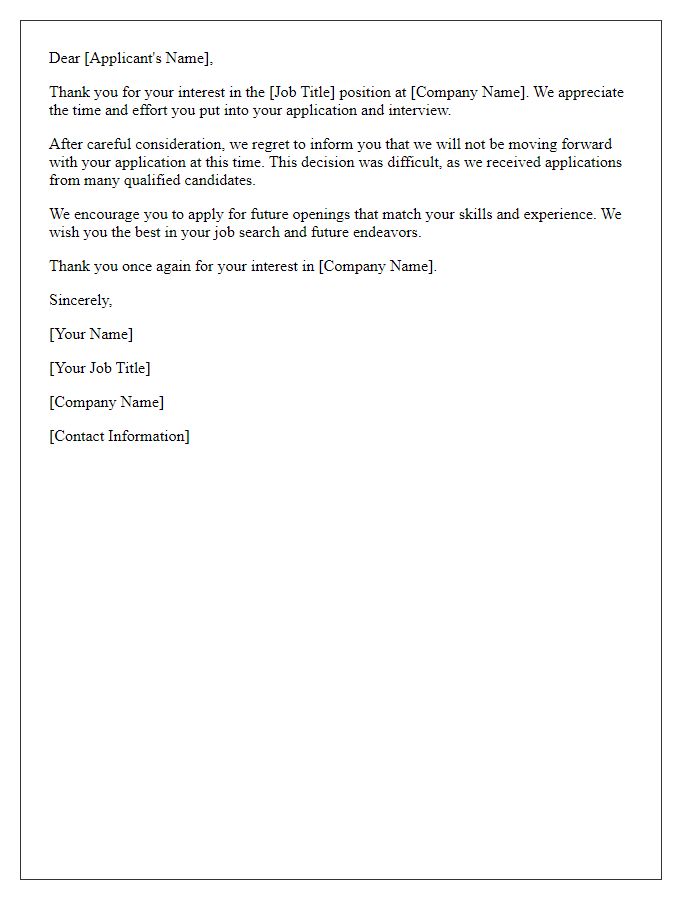
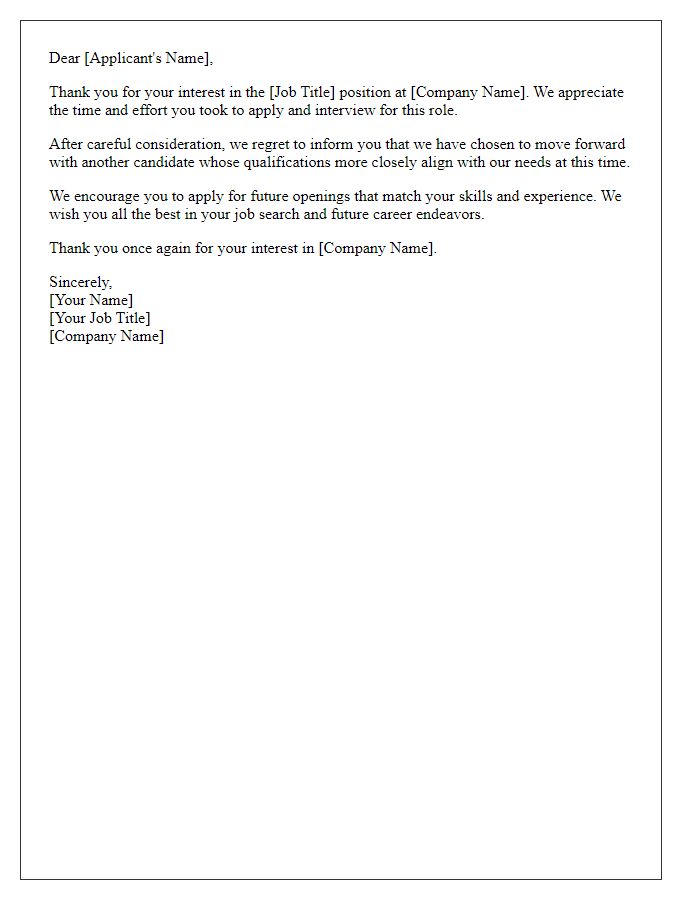
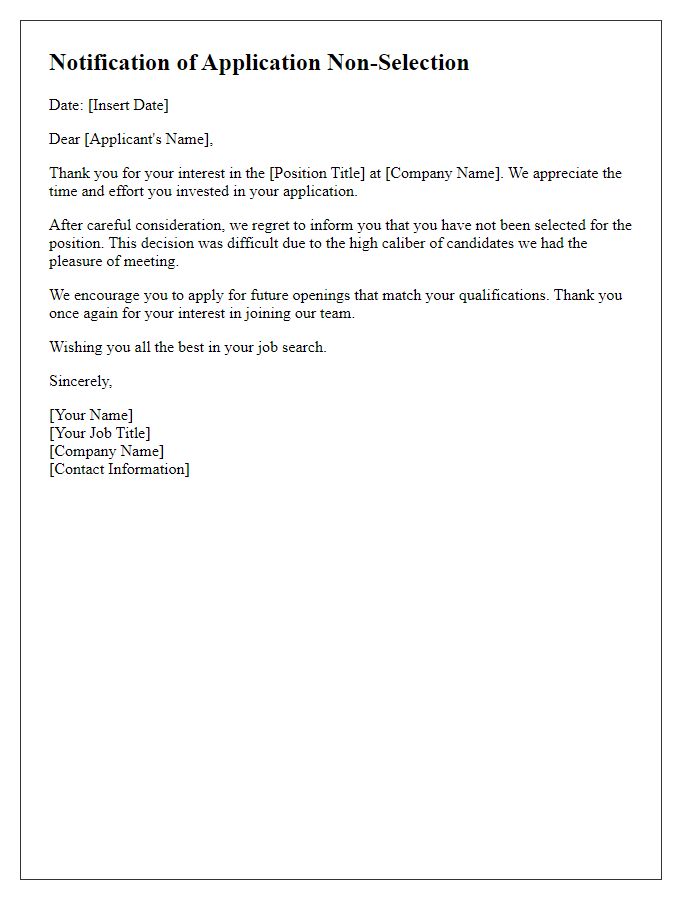


Comments